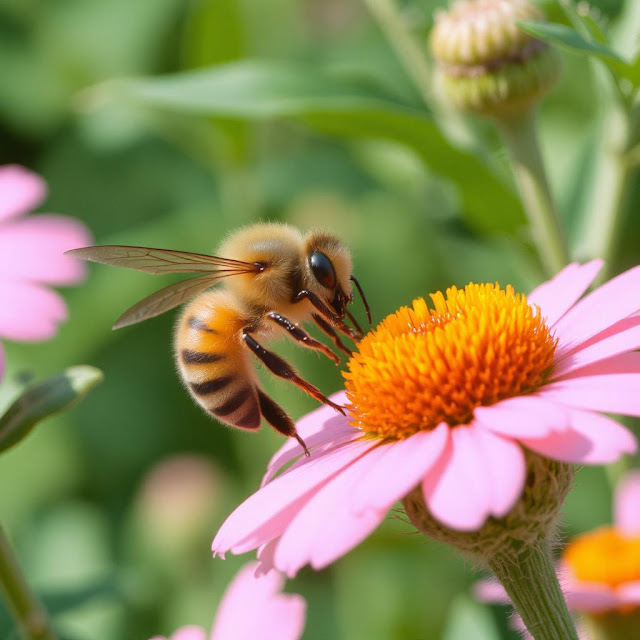Honey Bees Face Growing Threat from Warmer, Longer Autumns
INTRO:
I guess the average human being on earth today is so busy with his or her own thing.Only a few people care to know about what is going on around them.Do you know that honey bees play a crucial role in pollinating crops,ensuring the sustainability of our food supply so we don't starve,So next time you see a bee fly, just know that they play a very important role in the eco system.However,as global temperatures rise and seasonal patterns shift,these hardworking pollinators face new risks what a pity.I also learned from my research on this wonderful topic that brave men and women are at the forefront of research conducted by Washington State University (WSU) and they suggest that extended warm autumns could significantly increase the likelihood of colony collapse, threatening bee populations across the U.S. Yesterday night,while I was still carrying out my research on this topic,I discussed this with my friend James who is an entomologist,and he had a lot to say on this topic,and I learned new things from our conversation.
Outlines:
- How Warmer Autumns Affect Bee Colonies
- The Importance of Cold Storage
- Conclusion
How Warmer Autumns Affect Bee Colonies:
One thing I learned upon embarking on a research for this topic in order for me to a robust knowledge on what to write down,I discover from my research that bees instinctively forage whenever temperatures allow,even if their hive already has enough honey reserves.I also learned that this could be a bad thing because flying shortens their lifespan,and with prolonged fall seasons providing extended foraging conditions,worker bees may exhaust themselves before winter.I hope you get the mathematics here.As a result,by the time spring arrives,many colonies may lack enough adult bees to sustain their population,leading to collapse,my friend James really laid emphasis on this during our conversation.James also told that by using advanced climate and bee population models,researchers can examined future climate scenarios for 2050 and 2100, focusing on the Pacific Northwest.And James went further to say that their findings indicate that unless protective measures are taken,honey bee colonies in several regions will struggle to survive due to increased worker bee mortality before winter even begins he concluded.
The Importance of Cold Storage:
My friend James told me something that will excite you.James talks about a promising solution that has been indoor cold storage that has been studied for a while now,a technique that encourages bees to cluster in their hives earlier,conserving their energy and preserving worker populations. By simulating cold storage conditions,James went further to say that researchers found that colonies kept in controlled environments from October to April had significantly higher survival rates compared to those left outside.And he said that cold storage is already gaining traction among commercial beekeepers, particularly for logistical reasons when transporting hives to California for almond pollination.This study highlights additional benefits of the practice,proving it to be a vital tool in safeguarding bee populations amid climate change,I guess your are excited by this breakthrough.
Conclusion:
Judging from my conversation with my friend James and my little research on this topic,I came to the conclusion that the impacts of climate change on honey bee populations are not a distant concern they are happening now,and this is so scary to imagine.Extended autumns may seem beneficial on the surface,but they pose a hidden danger to these vital pollinators which many of us are oblivious to.How ever all hope is not lost yet.Implementing strategies like cold storage can help mitigate colony collapse,ensuring the survival of honeybee populations and the crops they support and good for the human ecosystem of the foodweb and foodchain.As climate conditions continue to change,we humans will continue to use proactive measures that will be essential to sustaining healthy bee colonies for the future.



Comments
Post a Comment